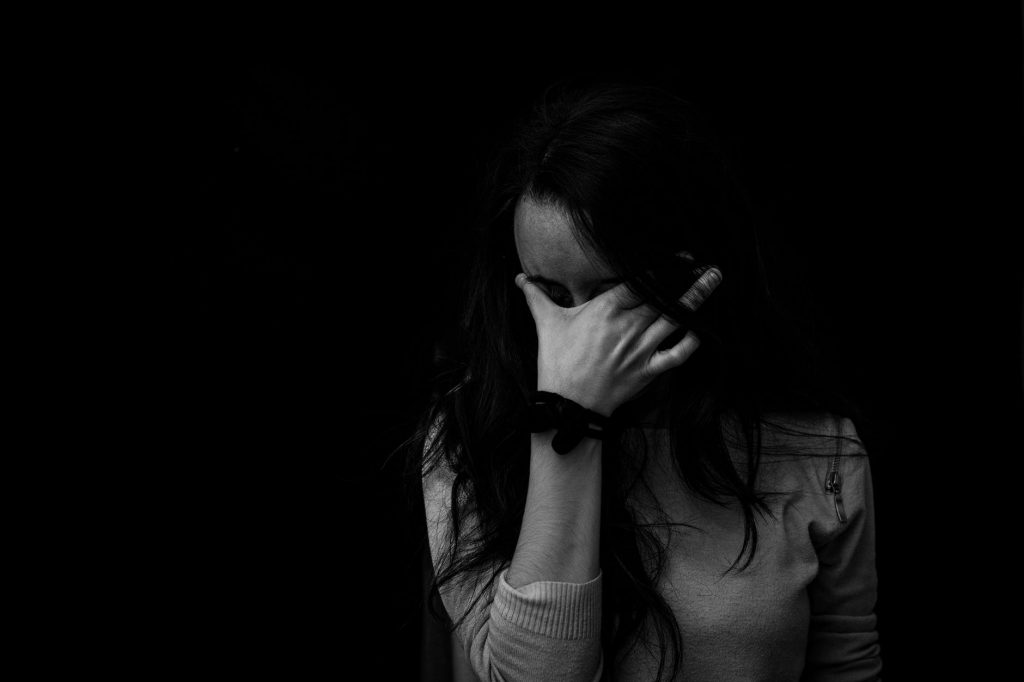
One reason that we often find grief and loss to be such a difficult challenge is that we have never learned what to expect. The following will help you understand some crucial truths about grief and loss when losing a loved one.
Importantly, how to work through the process to find healing is just as vital. The following 7 feelings are what you will most likely experience after a tremendous loss.
#1 Grief is Normal
Feeling grief after losing a loved one is not a disease. It is the normal, human response to a significant loss. People may encourage you to “be strong” or “not to cry.” But how sad it would be if someone we cared about died and we didn’t cry or we carried on as if nothing had happened?
When you lose someone special from your life, you are going to go through challenging times – this is to be expected. Our devastating loss is saying that we miss the person and that we’re struggling to adjust to a life without that special relationship.
Admittedly, saying that grief is normal still does not minimize how difficult the feelings are. It may be one of the most challenging experiences of your life. However, you are not crazy, or weak, or poorly managing things.
You are experiencing grief and after a significant loss that is and actually should be a normal response.
#2 Your Own Grief
A loss, whether it be a parent, sibling, child, or friend is a very personal matter. Your loss seems like the worst possible thing that could have happened to you. Sometimes people ask if it is more difficult to lose a spouse than to lose a child.
Others question if it is worse to lose someone after a long lingering illness or if they die suddenly and unexpectedly from a heart attack or in an accident. While these circumstances make each loss different, they are not important at the moment it happens.
The worst kind of loss is your own.
When you lose a significant person from your life, whatever the relationship, it hurts and nothing takes away from your right to feel the loss and grieve the absence of that person from your life.
#3 Dealing with Loss Is a Process
Grieving is painful. A loss is one of the most difficult human experiences. There is no easy way around it. We may try to avoid the pain. We may attempt to get over it as quickly as possible.
But most often, it simply does not work that way.
Helen Keller said, “The only way to get to the other side is to go through the door”. You need to try and find the courage to go through this experience of grief. Learning this is a major key to recovery and considering a therapist immediately afterward is always a good idea.
#4 Grief is Tied to the Relationship
Every relationship holds a special and unique significance to us. To fully interpret our grief and loss “response,” we need to understand what the relationship brought to our life.
We may grieve the loss of a parent differently from the loss of a friend. Each person made a significant, yet different, contribution to our lives. What we have lost is not the same and so we grieve differently. This too is normal.
Two individuals, both experiencing the loss of a spouse, may grieve quite differently because of the differing circumstances (the duration, level of happiness, and age) of the relationship.
#5 Grief and Loss is Hard Work
A response is painful and the process requires more energy to work through than most people expect. Whether we know it or not, the loss will take a toll both physically and emotionally.
This is why we often feel so fatigued after a loss or why we may feel very apathetic towards people and even joyful events. The problem is often compounded by people’s expectations of us to be strong or pull ourselves together or to get on with life.
The expression, “it is time to move forward” is not the same for everyone and is probably well-intentioned but not realistic.
#6 Overall Duration
How long will grief usually last? The simple answer is,“it is finished when it is finished”.
The first few months may be particularly intense. The first year is difficult—it will be a year of “firsts” without that person in your life. During the first Christmas or Hanukkah, the first birthday, anniversary, Mother’s Day, Father’s Day, Valentine’s Day, “a year ago today day” and many other times that remind us of our loss.
All of these special days are now difficult days and we need to anticipate them, know our responses are normal and be compassionate with ourselves.
#7 Grief Comes & Goes
Grief or a loss does not go away suddenly or within a predictable amount of time like the flu or a broken bone. Our healing process is different from a sickness model. Sometimes, at first, we do not feel the pain of grief because we are in shock and numb.
Often the pain is more intense some months after the event. Even then, grief is not unlike a roller coaster. One day we feel pretty good, and the next we find ourselves in the depths of despair.
Just when we think we are getting over it, we may experience another devastating setback. This can be discouraging to those who do not know what is happening. Most have not learned that grief comes and goes and takes much longer than most people expect.
We need to realize that this is the way grief works itself out and trust that the process, difficult as it is, is helping us work towards reconciliation. With counseling, a therapist can help with the highs and lows as well as coping, in general.
Summary
Society has unrealistic expectations about mourning and often responds inappropriately. Most people do not understand what is normal in grief and loss experiences.
Our jobs, friends, and oftentimes, even our family members will expect us to get over it quickly and express these expectations in a way that seems less than sensitive. Many people mistakenly believe that grief is so personal we want to keep it to ourselves. Keeping all of the emotion inside without talking about it is also unhealthy and could provoke an even longer healing process.
Grieving people need to talk. Not everyone will be willing or even able to respond to you. In fairness, not everyone can. Accept that, and try to find a support group or a counselor who can help.
Grief is about coping with the loss of a relationship and often in a helping relationship, relief can be found.
If you are experiencing symptoms caused by grief and loss or for more information about the positive effects of counseling for grief and loss, please contact Foundations Counseling today.


